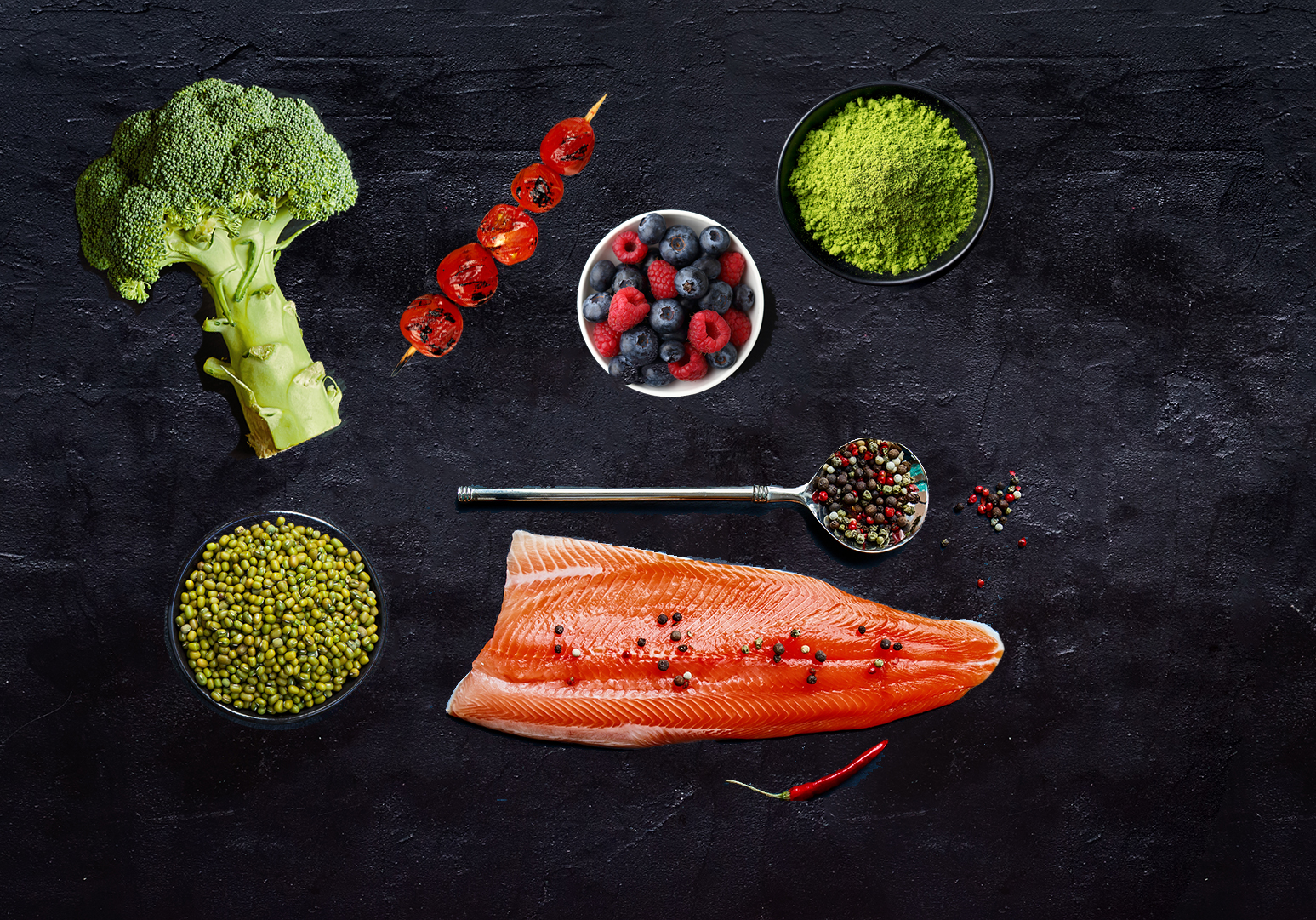by Julie Ann Bernstein, RDN/LD
“Let food by thy medicine and medicine be thy food.” It seems Hippocrates had the right philosophy. Food and nutrition play a huge role in health and wellness. According to The American Cancer Society, the most common type of cancer among men is prostate cancer. The good news is that what you consume in your daily diet can help lower your risk. A healthy and well-balanced diet rich in antioxidants, phytochemicals, Omega3 fatty acids, fruits, veggies and lean proteins can help support reducing risk factors for many types of cancers, including prostate cancer.
Although there is no single food item that is more important than another, there are many healthy foods that, when included in one’s diet, can greatly benefit and improve their health. “A healthy prostate diet looks like a healthy heart diet,” says Stephen Scionti, M.D., urologic oncologist and medical director for Virturo Health. A heart-healthy diet is very similar to the popular Mediterranean Diet. The Mediterranean Diet, inspired by the isles of Greece and Italy, consists of unrefined whole foods of vegetables, fruits, legumes, olive oils, lean proteins and fish. This diet is very high in antioxidants, phytochemicals and Omega3, the very nutritional properties that help lower the risk of prostate cancer.
Small nutritional changes can have a positive and lasting impact on overall health. The following is a list of six easy to incorporate foods to help lower your risk for prostate cancer:
Cooked Tomatoes
Tomatoes are an excellent source for lycopene, a powerful antioxidant. Antioxidants help remove toxic free radicals that can build up in the body and cause disease. Consuming cooked tomato products provides a higher nutritional level of lycopene for your body to utilize. Easy ways to incorporate cooked tomatoes can be found in canned tomatoes, tomato paste, tomato juices and sun-dried tomatoes. Other food options for lycopene include watermelon, grapefruit, red cabbage and papayas.
Berries
Anthocyanins are another excellent antioxidant to help with oxidative damage. Removing toxic radicals from the body helps with disease prevention. These tiny purple, blue and red berries are powerhouses for containing anthocyanins. The deeper and brighter the color of the berry, the better! Blueberries seem to get the most spotlight for prostate health, but all berries are beneficial in helping to lower your prostate cancer risk. Grapes, blackberries, strawberries and raspberries can be consumed fresh or frozen for the best nutritional benefit.
Fish
Omega3 fatty acids (healthy fat) decrease inflammation in the body. Inflammation is known to promote cancer cell growth. A diet rich in anti-inflammatory foods can help reduce your risk. Eating foods high in Omega3 fatty acids such as salmon, tuna, mackerel and anchovies have been shown to lower the inflammatory response system in the body. If you don’t like fish, no worries. There are other Omega3 options such as walnuts, chia seeds and flaxseed oil.
Broccoli
Sulforaphane is a phytochemical found in plants that researchers suspect has the ability to not only target cancer cells but also kill them. The most talked-about of these vegetables in the fight against cancer is broccoli. Studies show consuming cruciferous vegetables have the ability to lower your risk of cancer. Broccoli is just one of many cruciferous vegetables. Cauliflower, cabbage, kale, bok choy and Brussel sprouts are all part of the cruciferous family and have similar benefits that lower your risk of prostate cancer.
Green Tea
Catechins are yet another powerful antioxidant group of compounds that can help lower your risk of prostate cancer. The most powerful catechins in green tea are EGCG (epigallocatechin-3-gallate, and epicatechin). These catechins are believed to be anti-carcinogenic and help healthy cells from not mutating into cancer cells. According to the Prostate Cancer Foundation, men who drink five cups of green tea per day decrease their risk of prostate cancer.
Legumes and Soy
According to the National Cancer Institute, there is a link between soy and reduced levels of PSA (prostate-specific antigen). Research shows isoflavones may contain cancer-fighting properties and suppress cancer cell growth. Legumes such as beans, lentils, peanuts and soy contain these phytoestrogens and may help lower your risk for prostate cancer.
In closing, “You are what you eat.” This old adage now seems to be more scientific than proverbial in today’s modern world.








Leave A Comment